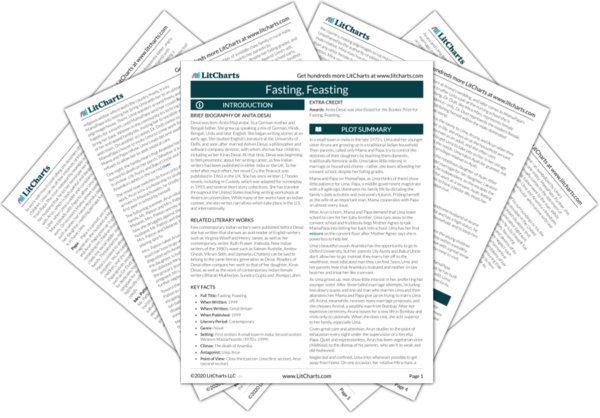LitCharts assigns a color and icon to each theme in Fasting, Feasting, which you can use to track the themes throughout the work.
Family Life and Individual Freedom
Plenty/"Feasting" vs. Want/"Fasting"
Tradition/India vs. Modernity/West
Loneliness and Togetherness
